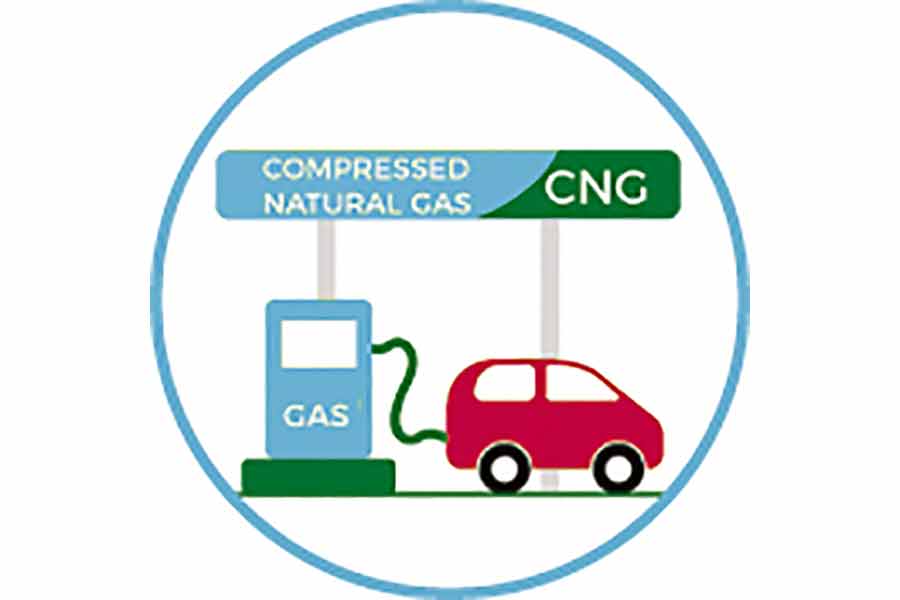
Published :
Updated :

This summer is going to be very painful. Let there be no doubt about the massive load-shedding regime for consumers to smart under, because households will be the last on the list when it comes to energy allocation. It is not possible to predict how many hours of the day will be spent without electricity during the high summer. Already certain things are becoming clearer. That the national grid is getting less natural gas from existing gas fields is evident. Compressed natural gas (CNG) pumps, which forms the backbone for most vehicles apart from heavy lorries (to a certain extent), have gas rationing in place; with up to five hours a day. Household piped gas in many areas of the capital city is also facing a no-gas situation for many hours of the day. All this is happening before the scorching heat of summer has yet to arrive.
The US dollar crunch is already here. Amidst austerity measures, the Bangladesh Bank (BB) has been forced of late, to curtail selling hundreds of millions of dollars to banks which need to open letters of credit (LCs) for import purposes. At the same time, the country has been forced to buy liquefied natural gas (LNG) from the spot market to stave off industrial-shutdown in many sectors. The situation however is getting trickier by the day. Fact is, greenback is needed for importing not just LNG, but also coal and liquid fuel which are the two other major fossil fuels that are needed to fire up the various power plants in operation today, or will be in the near future. These include the multiple coal-fired powered plants and the independent power plants (IPPs) that run on liquid fuel.
All this illustrates just the needs of the energy sector. What about the rest of the economy? Bangladesh has multi-billion dollar bills for everything ranging from grains and cereals, industrial raw materials and capital machinery which need to be imported. On top of all that, international creditors have come calling. Russia has asked for the first three instalment payments on loans given for the multi-billion-dollar nuclear power plant that has largely been financed by that country. Bangladesh missed those payments, although negotiations are on for deferred payment. What about the Chinese loans for the multiple infrastructural projects that are ongoing? Those payments will have to start soon. Will Bangladesh be in a position to defer payments on those too?
Come summer, energy experts estimate that demand may increase beyond 16,000 MW (megawatts). But given that Bangladesh is facing an uphill task with its foreign currency (forex) reserves, precisely how it will balance the increased demand for imported coal / LNG / fossil fuels against the other import bills remains to be seen. As rightly pointed out by one energy expert recently, the import bill for fuel has grown to 48 per cent in 2022. This percentage will witness another jump in 2023 because already some coal power plants have been completed. The question now is whether Bangladesh can afford to commission them. To add salt to injury, the Russo-Ukrainian war has played havoc with international energy prices and the volatility in oil and gas prices have not helped matters. The fact that LNG spot prices are now lower than before doesn't really help Bangladesh because the country is currently facing a forex crisis. With $23 billion (according to IMF calculation), policymakers are not in an enviable position to make decisions on what to import, in what quantity to feed the $470 billion economy. There are several sectors that will have to be supplied with gas. The readymade garments (RMG) sector brings in more than 80 per cent of export earnings, so it gets the highest priority. But what to is to be done about steel, ceramics and other sectors?
In the midst of the gas crisis, energy experts keep repeating the obvious, i.e., stop the leakage of precious gas in the form of illegal gas connections; stop supplying gas to energy-inefficient plants to produce power; make it mandatory for industry to become more energy-efficient. The fundamental principles have been advocated for decades and no heed was paid to them. Similarly, the advice to explore own natural energy resources, be it coal or natural gas, was wilfully ignored by national energy planners.
One should revisit the statements made by the energy authorities when they advocated vehemently for the case of importing energy fuels as opposed to drilling and extracting domestic natural gas and coal. Today, Bangladesh is in this fix because of the failure of successive governments to do what other countries in the region like India and China have done. Those nations used the last decade to simultaneously secure energy supplies beyond their shores and developed the capacity to explore/extract/drill their own natural energy resources. That is why today, both of those countries are global economic power houses and Bangladesh is still wondering what to do this summer.
mansur.thefinancialexpress@gmail.com


 For all latest news, follow The Financial Express Google News channel.
For all latest news, follow The Financial Express Google News channel.